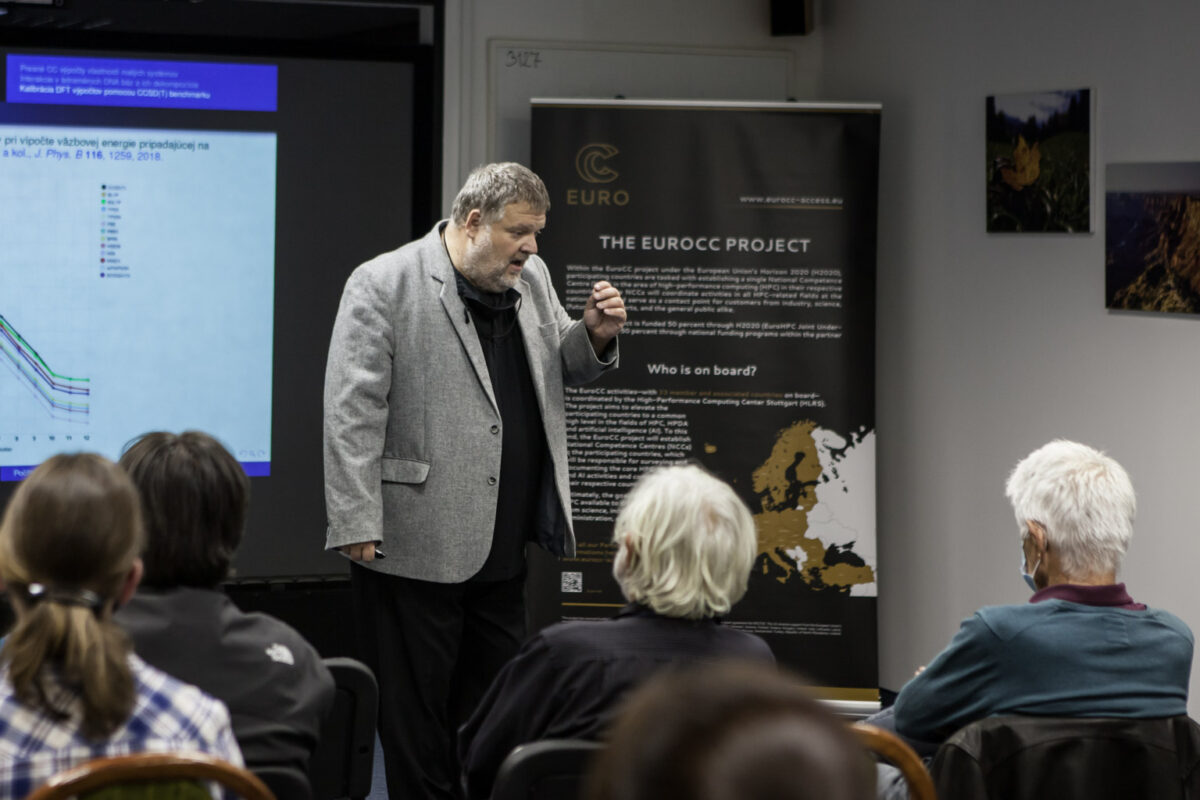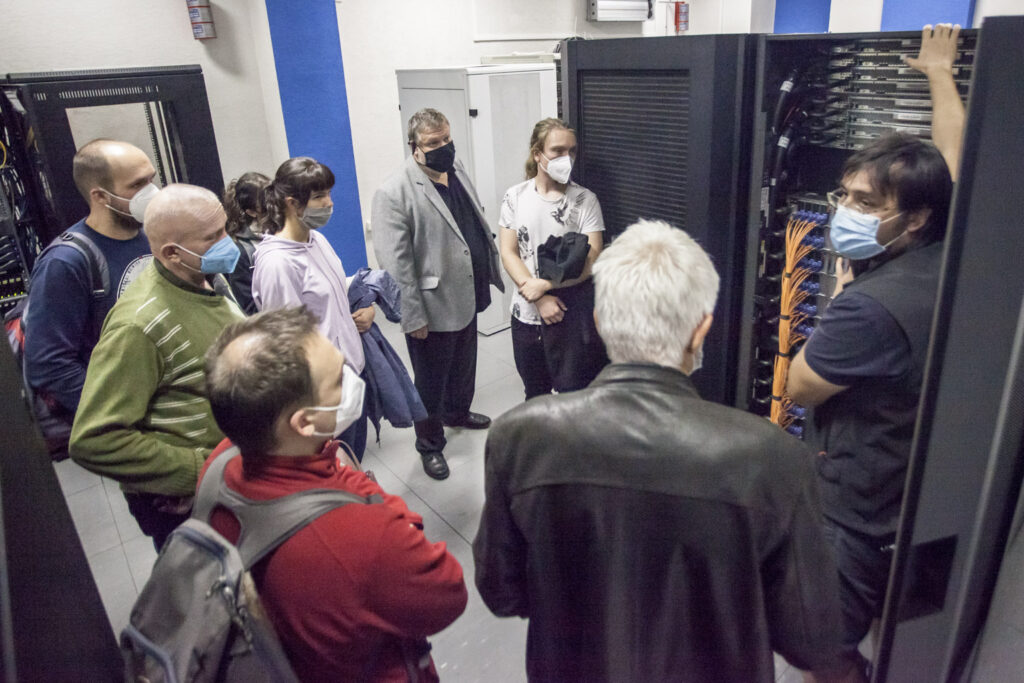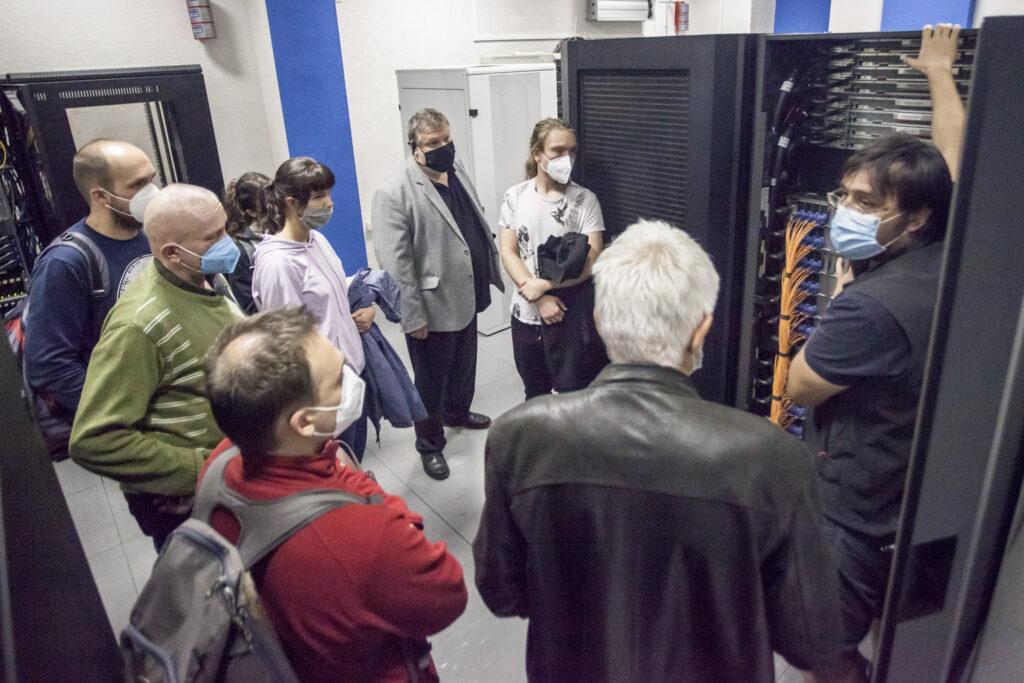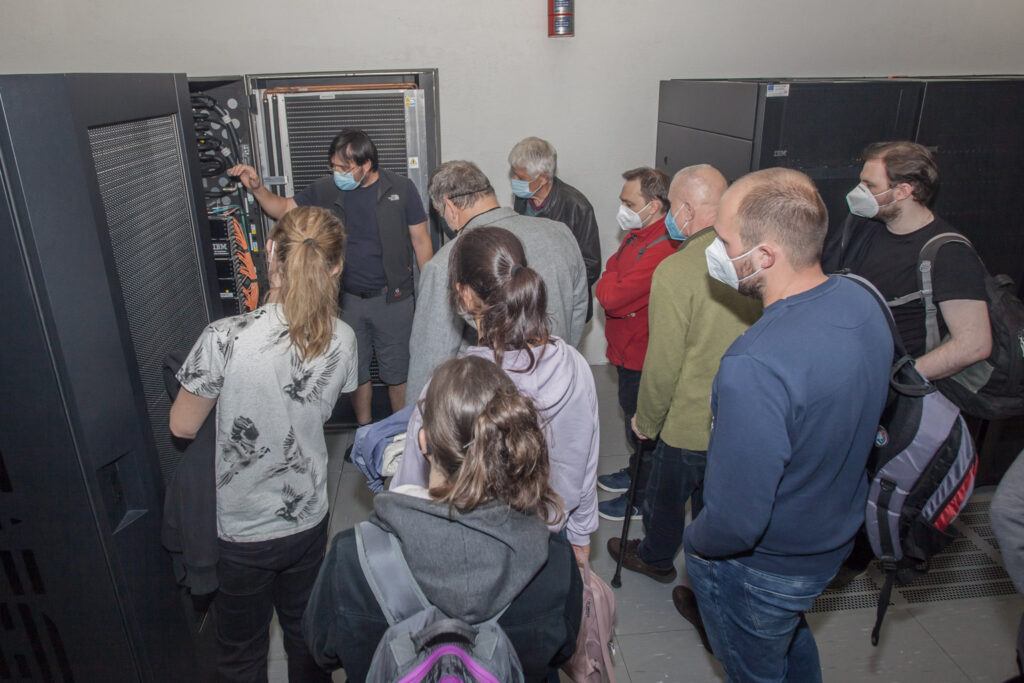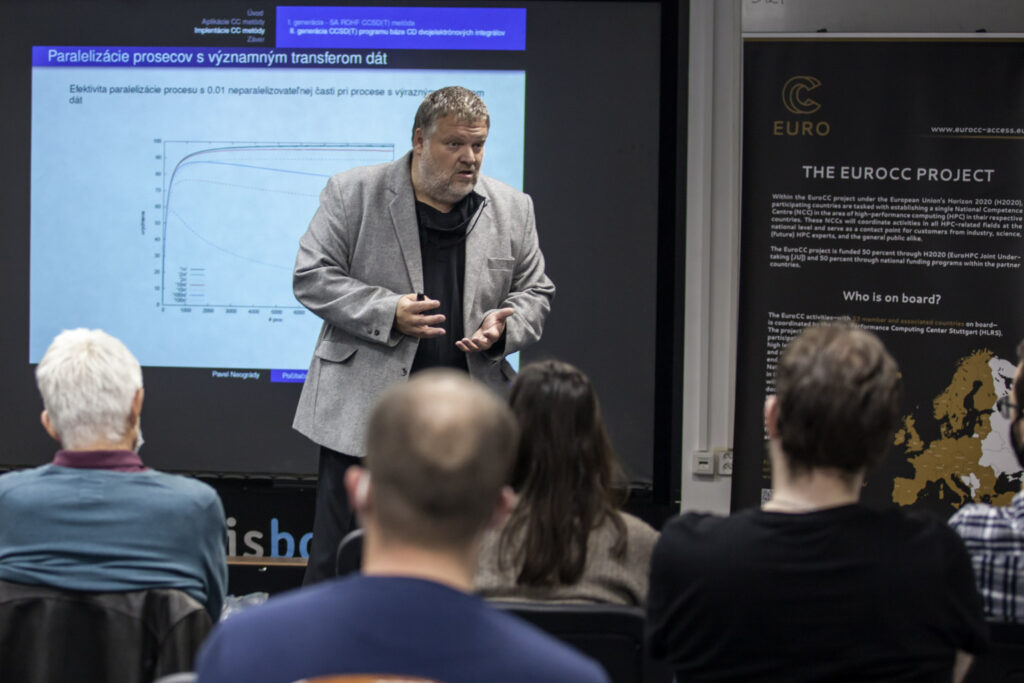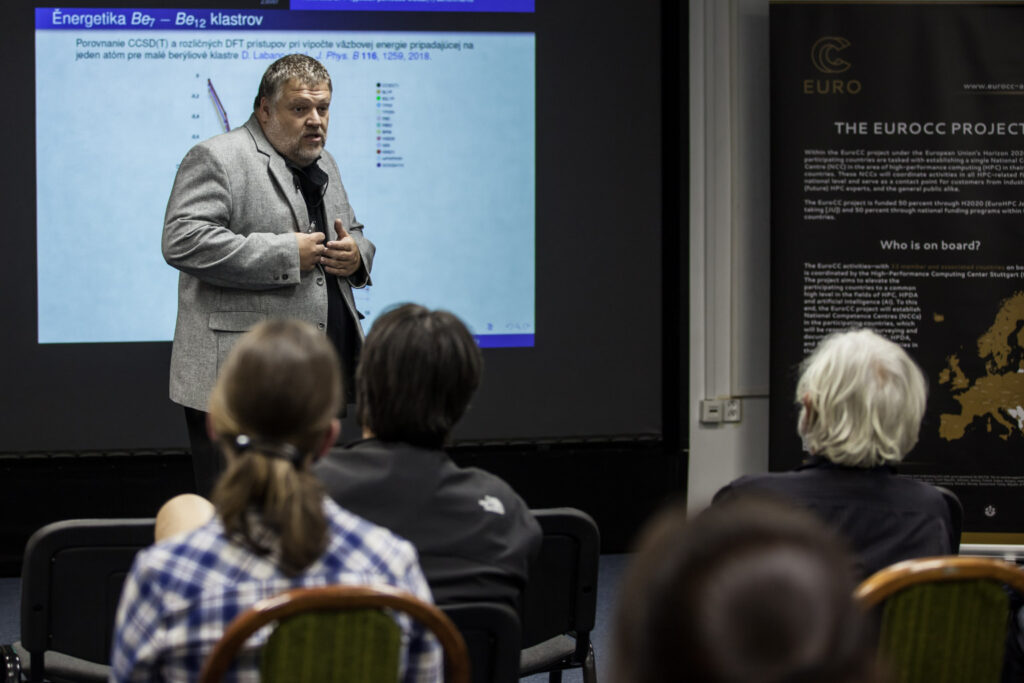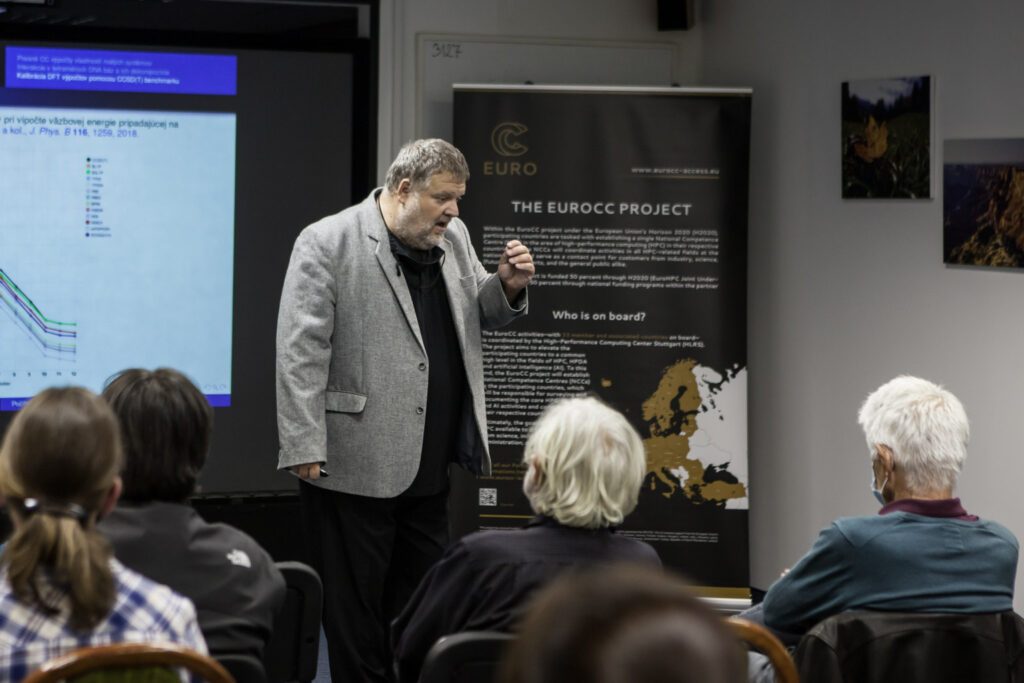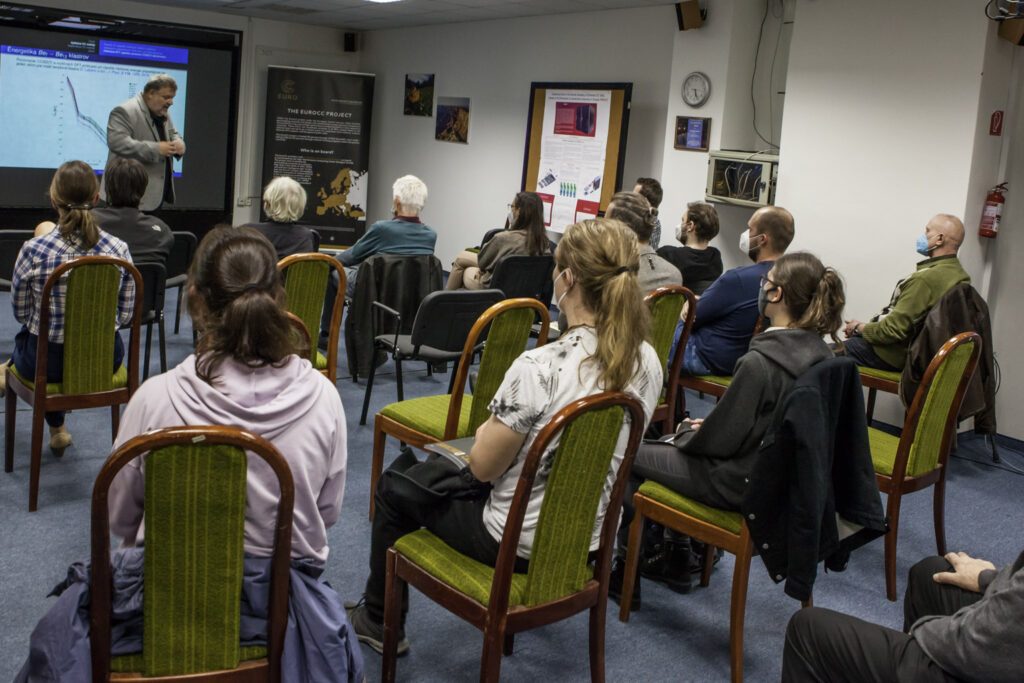Can we exploit the HPC possibilities in basic research effectively?
On October 12, 2021 the second lecture of our „Supercomputing in science“ series took place on the premises of the Computational centre of the Slovak Academy of Sciences Pavel Neogrády from the Department of physical and theoretical chemistry of the Faculty of Natural Sciences CU talked about highly accurate computational methods in the field of theoretical chemistry and about their complexity and numerical intricacies.
There are a lot of HPC users in Slovakia that work with this type of applications and algorithms in their research. As one of the developers of chemical modelling methods Pavel also elaborated on his experience with effective software parallelization and described the main issues in the implementation. Although the computational cost of these methods is prohibitive for modelling larger systems, they are used for calibrating of other methods capable of describing and predicting properties of complex molecules, such as new drugs or materials.
Lecture series is a joint activity of the Computer museum COO SAS and National Competence Center for HPC. NCC, as the primary contact point for HPC in Slovakia, covers, among other things, educational and dissemination activities in this area.
You can watch the recording of the event on Facebook and YouTube and you can already register for our next lectures. Schedule and registration:
- October 26, 17:00 - Development of technology and computer architecture – from 1-processor serial computers to supercomputers
Martin Šperka (Computer Museum, COO SAS) - November 9, 17:00 - Operation systems in multiprocessor clusters
Dušan Bernát (Faculty of mathematics, physics and informatics, Comenius University) - November 23, 17:00 - Short guide to software parallelization
Jaroslav Suchánek (Biomedical Research Center, SAS) - December 7, 17:00 - Federated distributed computing
Ladislav Hluchý (Institute of Informatics SAS) - December 21, 17:00 - Modelling of 2D systems properties using the Quantum Monte Carlo methods
Ivan Štich (Institute of Physics SAS)
More information about the series
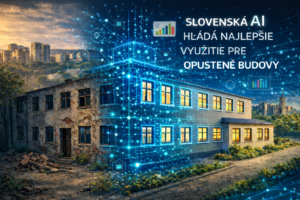 Urban buildings awaken: Slovak AI gives a second chance to underused spaces 4 Mar - Mestá sú živé organizmy, ktoré sa neustále menia. Mnohí z nás však v susedstve denne míňajú tiché svedectvá minulosti – prázdne školy, nevyužívané úrady či chátrajúce verejné budovy. Často si kladieme otázky: „Prečo je to zatvorené?“ „Nemohol by tu byť radšej denný stacionár, škôlka alebo kultúrne centrum?“
Urban buildings awaken: Slovak AI gives a second chance to underused spaces 4 Mar - Mestá sú živé organizmy, ktoré sa neustále menia. Mnohí z nás však v susedstve denne míňajú tiché svedectvá minulosti – prázdne školy, nevyužívané úrady či chátrajúce verejné budovy. Často si kladieme otázky: „Prečo je to zatvorené?“ „Nemohol by tu byť radšej denný stacionár, škôlka alebo kultúrne centrum?“ BeeGFS in Practice — Parallel File Systems for HPC, AI and Data-Intensive Workloads 6 Feb - This webinar introduces BeeGFS, a leading parallel file system designed to support demanding HPC, AI, and data-intensive workloads. Experts from ThinkParQ will explain how parallel file systems work, how BeeGFS is architected, and how it is used in practice across academic, research, and industrial environments.
BeeGFS in Practice — Parallel File Systems for HPC, AI and Data-Intensive Workloads 6 Feb - This webinar introduces BeeGFS, a leading parallel file system designed to support demanding HPC, AI, and data-intensive workloads. Experts from ThinkParQ will explain how parallel file systems work, how BeeGFS is architected, and how it is used in practice across academic, research, and industrial environments. When a production line knows what will happen in 10 minutes 5 Feb - Every disruption on a production line creates stress. Machines stop, people wait, production slows down, and decisions must be made under pressure. In the food industry—especially in the production of filled pasta products, where the process follows a strictly sequential set of technological steps—one unexpected issue at the end of the line can bring the entire production flow to a halt. But what if the production line could warn in advance that a problem will occur in a few minutes? Or help decide, already during a shift, whether it still makes sense to plan packaging later the same day? These were exactly the questions that stood at the beginning of a research collaboration that brought together industrial data, artificial intelligence, and supercomputing power.
When a production line knows what will happen in 10 minutes 5 Feb - Every disruption on a production line creates stress. Machines stop, people wait, production slows down, and decisions must be made under pressure. In the food industry—especially in the production of filled pasta products, where the process follows a strictly sequential set of technological steps—one unexpected issue at the end of the line can bring the entire production flow to a halt. But what if the production line could warn in advance that a problem will occur in a few minutes? Or help decide, already during a shift, whether it still makes sense to plan packaging later the same day? These were exactly the questions that stood at the beginning of a research collaboration that brought together industrial data, artificial intelligence, and supercomputing power.
